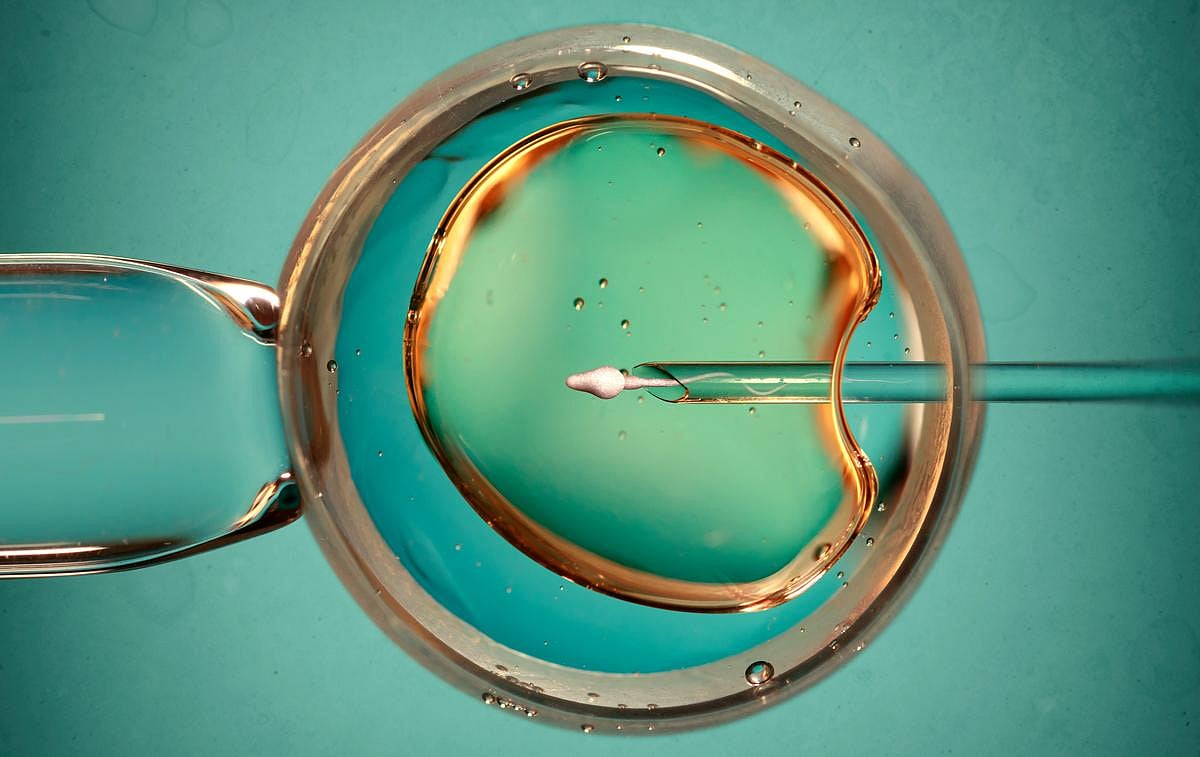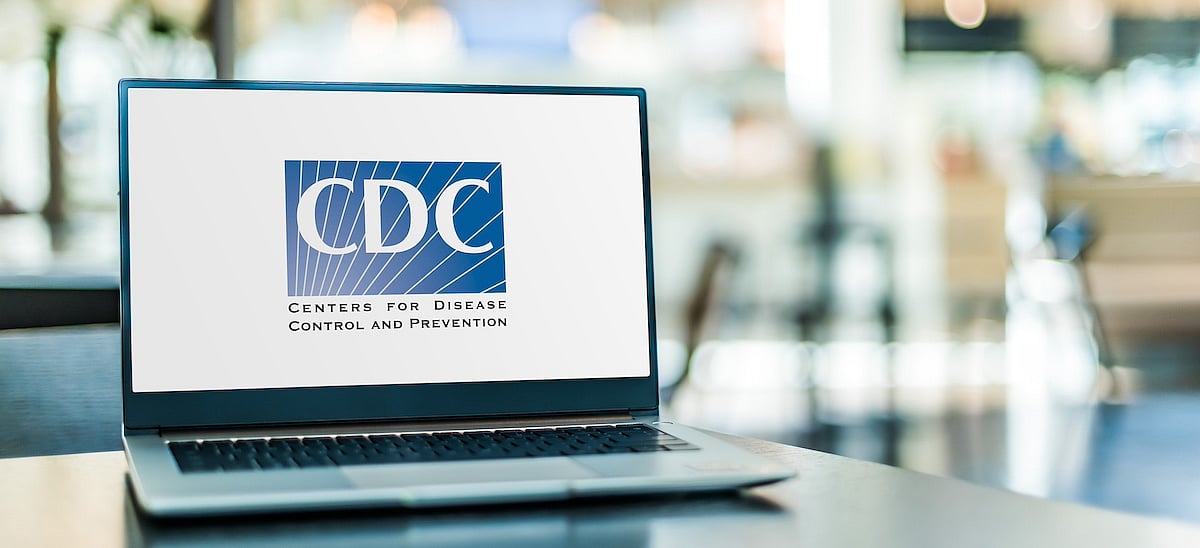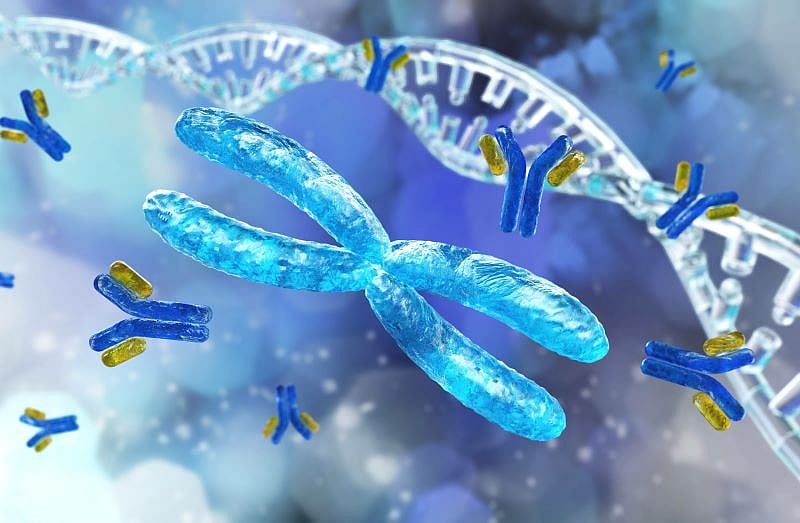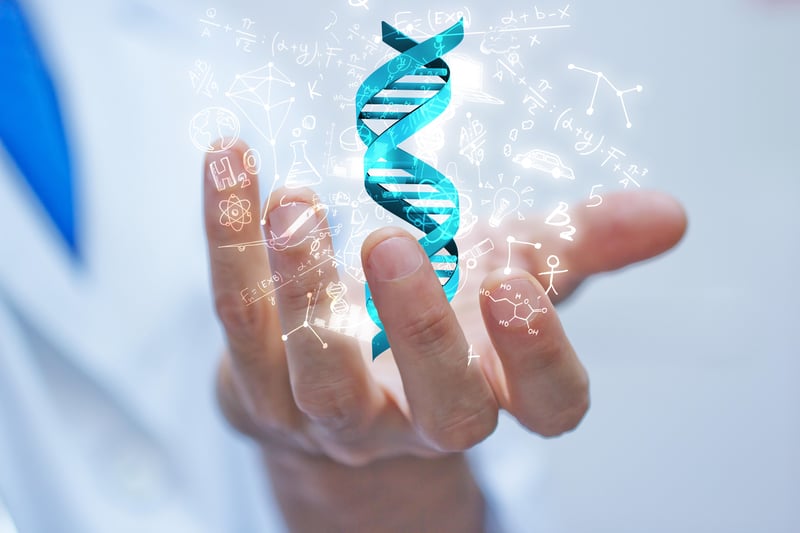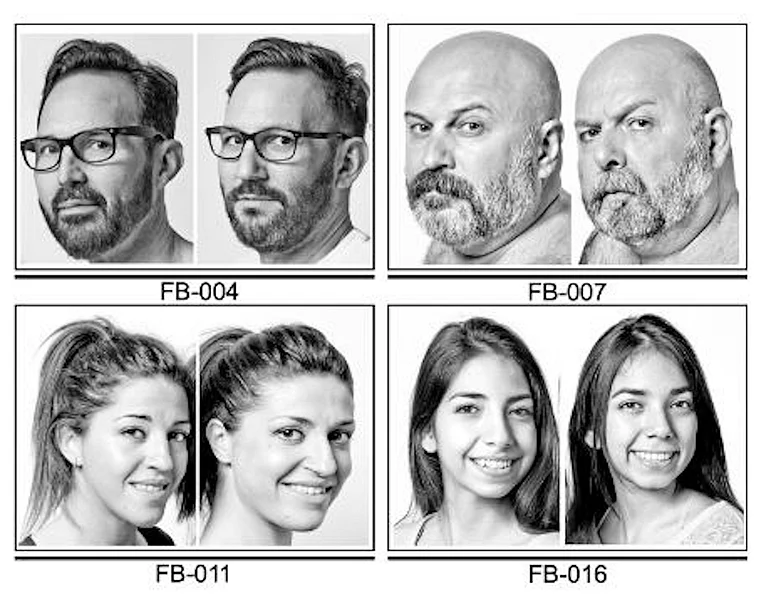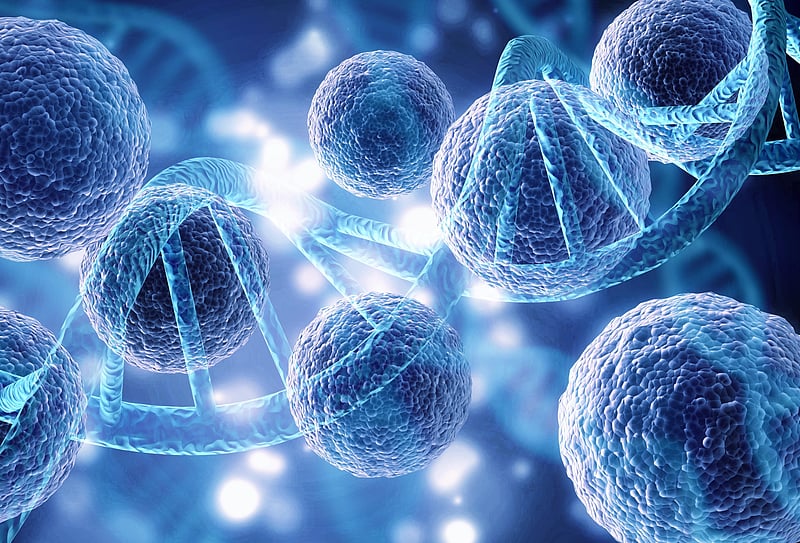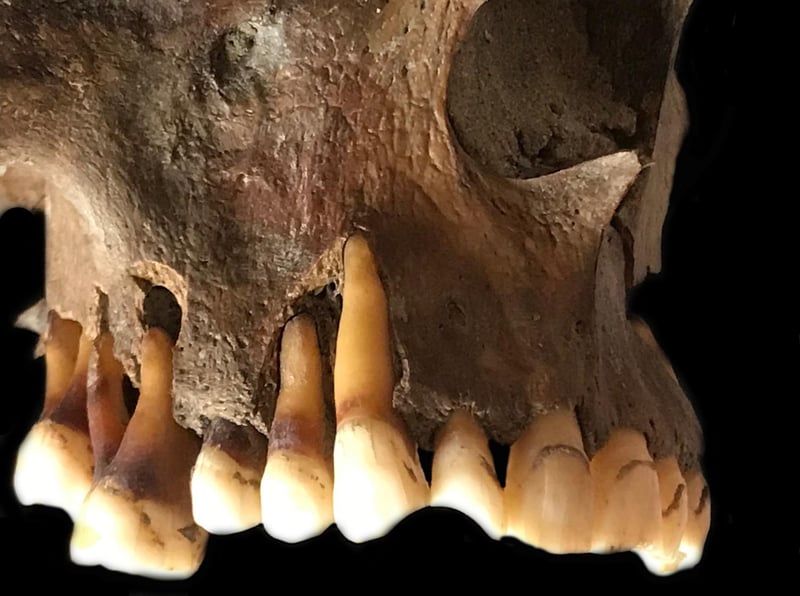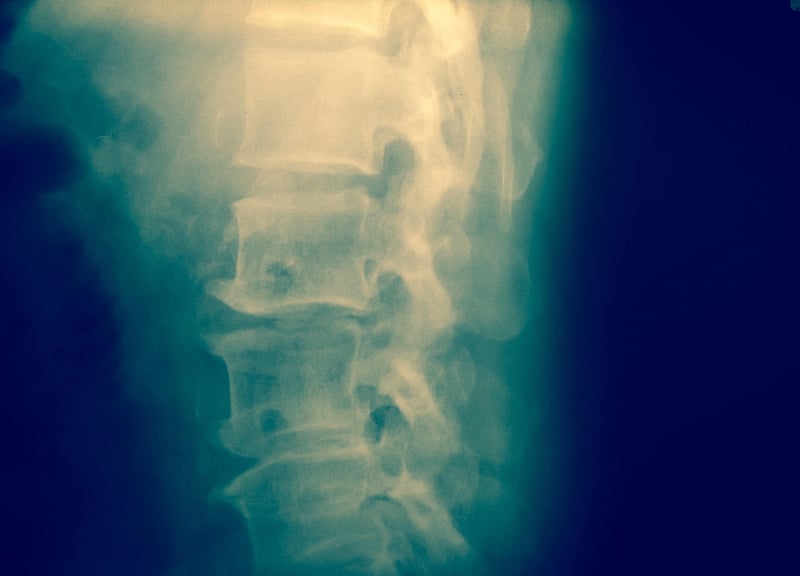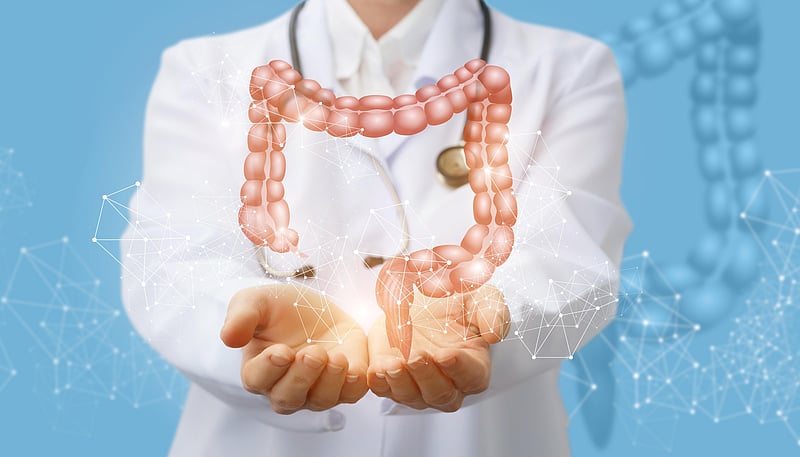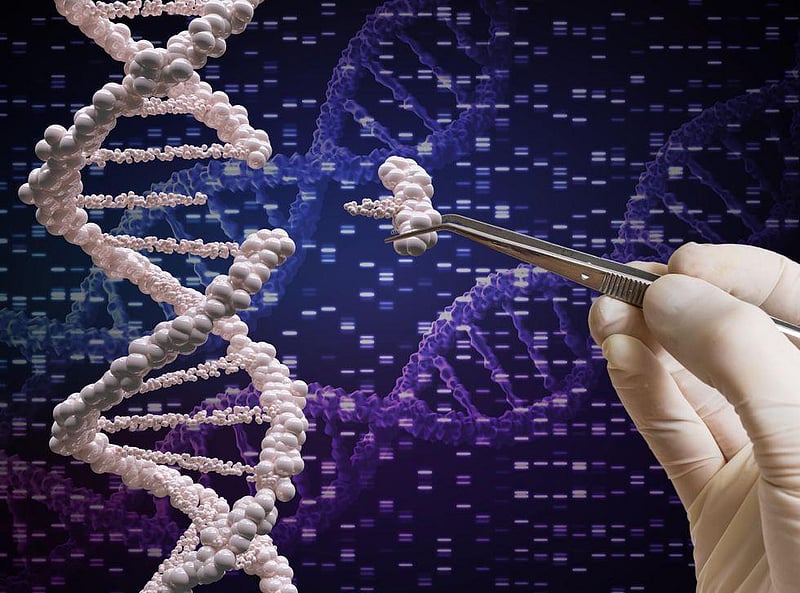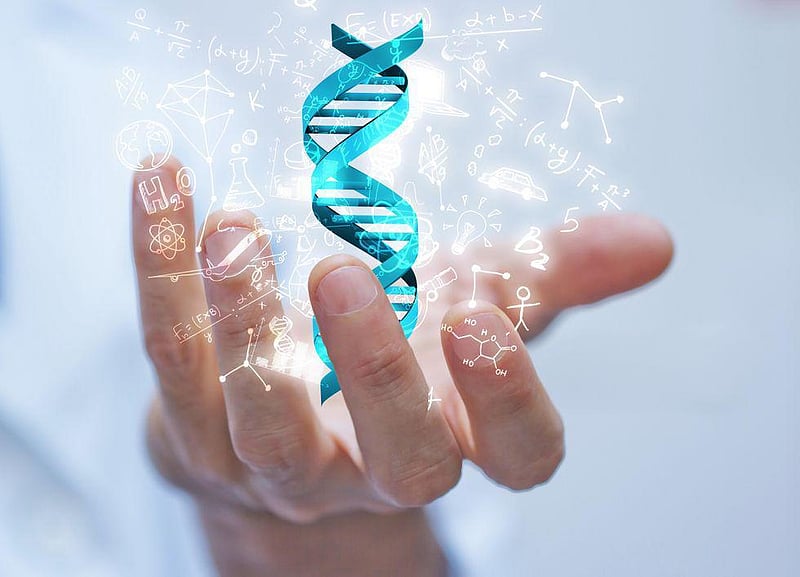Patient Resources
Get Healthy!
Results for search "DNA".
Health News Results - 25
8 Babies Born Using New IVF Technique to Prevent Rare Genetic Diseases
- HealthDay Reporter
- I. Edwards
- July 18, 2025
- Full Page
FRIDAY, July 18, 2025 (HealthDay News) — A new IVF technique helped eight babies in the U.K. avoid serious inherited diseases, and scientists are calling it a breakthrough.
All eight children were born using a method that uses DNA from three people: the mother, the...
Shared Your DNA With 23andMe? Experts Say It’s Time To Delete It
- HealthDay Reporter
- I. Edwards
- March 25, 2025
- Full Page
If you’re one of the 15 million people who shared your DNA with 23andMe, stop whatever you're doing.
Experts say now is the time to delete your data.
The genetic testing company filed for bankruptcy March 23 and is looking to sell its assets.
California...
Susan Monarez Named CDC Director
- HealthDay Reporter
- I. Edwards
- March 25, 2025
- Full Page
President Donald Trump has chosen Susan Monarez to lead the U.S. Centers for Disease Control and Prevention (CDC) permanently. She has served as acting director since January.
If approved by the Senate, Monarez...
Renters May Age Faster Than Homeowners, Study Finds
- HealthDay Reporter
- Amy Norton
- October 11, 2023
- Full Page
Renting a home, rather than owning it outright, may speed up the body's aging process, a new study suggests.
Researchers found that when compared with people who owned their home outright (no mortgage), those who rented showed signs of faster "biological aging" -- which ...
Blood Test Might Help Diagnose Parkinson's Disease Much Earlier
- HealthDay Reporter
- Denise Mann
- August 31, 2023
- Full Page
As it stands, no one blood test or brain scan can definitively diagnose Parkinson's disease.
But researchers report this may soon change if a new blood test continues to show promise.
The test measures DNA damage in the mitochondria of cells, which is known to be h...
Could Loss of the Y Chromosome Help Speed Cancers in Men?
- HealthDay Reporter
- Dennis Thompson
- June 21, 2023
- Full Page
It's common knowledge that loss is a part of male aging -- loss of hair, loss of muscle tone, loss of vision or hearing.
But men growing older also start losing the very thing that makes them biological males, their Y chromosome, and that can leave them more vulnerable t...
Traces of Human DNA Are Everywhere in the Environment
- HealthDay Reporter
- Dennis Thompson
- May 15, 2023
- Full Page
Detailed remnants of human DNA can be found just about everywhere that people have been, a surprising finding that raises a host of ethical issues for researchers, a new study says.
Environmental samples of human DNA were found nearly everywhere, save for isolated island...
A More Diverse Human Genome: The 'Pangenome'
- HealthDay Reporter
- Dennis Thompson
- May 10, 2023
- Full Page
Last year, gene researchers made news by announcing the completion of the first complete sequence of the human genome.
That effort has now been expanded, with researchers using that success as a springboard to create a comprehensive and sophisticated collection of genome...
Smoking or Vaping? The DNA Damage May Be the Same
- HealthDay Reporter
- Cara Murez
- February 16, 2023
- Full Page
A new study builds upon earlier evidence that vaping isn't any healthier than smoking.
In analyzing epithelial cells taken from the mouths of vapers, smokers and people who had never vaped or smoked, researchers found that vapers and smokers had more than twice the amoun...
Your Dog's Behavior Is in Its DNA
- HealthDay Reporter
- Cara Murez
- December 9, 2022
- Full Page
Is your pooch a herder or a hunter? You can try taking them to a trainer, but new research shows much of their behavior is hardwired in their DNA.
For the new study, researchers analyzed DNA samples from more than 200 dog breeds and surveyed 46,000 pet-owners to try to s...
Unrelated Folks Who Look Alike Share Similar DNA
- HealthDay Reporter
- Cara Murez
- August 23, 2022
- Full Page
A person's unrelated lookalike, commonly known as a doppelganger, may actually share genes that affect not only how they appear, but also their behavior.
In a new study, scientists did DNA analysis on 32 sets of virtual twins -- people with strong facial similarities -...
Major Gene Study Spots DNA Tied to Autism, Other Disorders
- HealthDay Reporter
- Dennis Thompson
- August 19, 2022
- Full Page
More than 70 genes are very strongly associated with autism and more than 250 are linked to the condition, a major new genetic analysis has revealed.
The analysis is the largest of its kind ...
Ancient DNA Points to Oral Herpes' Beginnings
- HealthDay Reporter
- Cara Murez
- July 28, 2022
- Full Page
While the herpes virus that causes lip sores is common today, it has been difficult for scientists to find traces of it among ancient remains.
Now, researchers report they h...
Could an Experimental Cancer Drug Help Treat Spinal Injury?
- HealthDay Reporter
- Ellie Quinlan Houghtaling
- July 18, 2022
- Full Page
A drug in development as a cancer therapy may also help the body regenerate damaged nerves after spinal injuries, new research suggests.
Scientists at the University of Birmingham in the United Kingdom report that they used cell and animal models to show that the drug, d...
Gene Test Lets Some Colon Cancer Patients Safely Skip Chemo
- HealthDay Reporter
- Dennis Thompson
- June 7, 2022
- Full Page
A blood test could save some colon cancer patients from getting unnecessary chemotherapy following surgery, while making sure that those who would benefit from the treatment get it, researcher...
Nerve Gas Sarin Probably Caused Gulf War Syndrome
- HealthDay Reporter
- Amy Norton
- May 12, 2022
- Full Page
After 30 years, researchers believe they finally have definitive evidence of the primary cause of Gulf War syndrome: exposure to low levels of the nerve gas sarin.
Your Dog's Breed Has Little Influence on Behavior, Study Finds
- HealthDay Reporter
- Dennis Thompson
- April 29, 2022
- Full Page
For the past couple of centuries, humans have been breeding dogs to meet specific physical characteris...
Genetic Sign of Aging Linked to Risk of Fatal COVID
- HealthDay Reporter
- Robert Preidt
- April 25, 2022
- Full Page
It's known that certain chronic health conditions up the odds of death from COVID-19. Now, new research identifies another risk factor.
Shorter telomeres are associated with an increased likelihood of death from COVID-19, particularly in older women, researchers say.
...More DNA Errors Seen in Brain Cells of Alzheimer's Patients
- HealthDay Reporter
- Robert Preidt
- April 22, 2022
- Full Page
Genetic mutations build up faster in the brain cells of Alzheimer's disease patients than in other people, new research reveals.
The discovery could point the way to new Alzheimer's t...
Job Done: Scientists Fill in Missing Gaps to Complete Map of Human Genome
- HealthDay Reporter
- Dennis Thompson
- March 31, 2022
- Full Page
The Human Genome Project produced the most complete map of human genetics ever assembled in 2003 - but that map still held many uncharted territories.
It did not contain about 8% of the human genome, representing crucial regions and large gaps that have remained hidden f...
Did Your Gene Screen Turn Up Dangerous DNA? Study Finds Real Risk Is Low
- HealthDay Reporter
- Amy Norton
- January 27, 2022
- Full Page
Most gene variants that have been labeled "pathogenic" may make only a small difference in a person's risk of actually developing disease, a new study suggests.
Scientists ID Genes That Make Your Fingerprints
- HealthDay Reporter
- Cara Murez
- January 12, 2022
- Full Page
Your fingerprints may be more than a surefire way to identify you: New research suggests their patterns may be linked to genes that guide limb development.
"People may wonder why our team is working on fingerprints," said co-senior study author Sijia Wang, a geneticist a...
Zoo Study Finds Animal DNA Floating in Air
- HealthDay Reporter
- Cara Murez
- January 7, 2022
- Full Page
Take a whiff of the air in a zoo and you could breathe in the animals' DNA -- not just the smell of the food they eat or their waste, a new study suggests.
Sampling the air from local zoos, two teams of researchers collected enough DNA to identify the animals nearby. The...
Love Black Coffee & Dark Chocolate? It Could Be in Your DNA
- HealthDay Reporter
- Cara Murez
- December 30, 2021
- Full Page
If you like your coffee black, it could be that your grandpa or your great-aunt did, too.
A preference for black coffee and also for dark chocolate seems to lie in a person's genes, scientists report.
It's not the taste that these individuals actually love, but it...
Blood Test Spots Biological Markers for Schizophrenia
- HealthDay Reporter
- Robert Preidt
- August 12, 2021
- Full Page
Schizophrenia is a debilitating disease that can make navigating daily life a massive challenge, but a new blood test could flag it in its early stages, researchers say.
Their analysis of blood samples identified epigenetic markers -- part of your DNA -- that differ betw...

